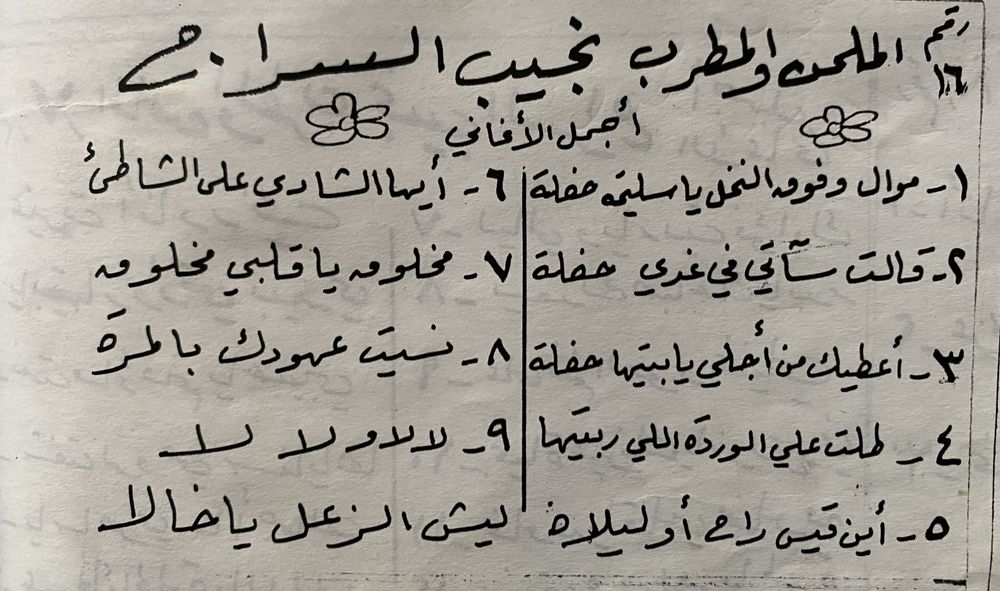

Najib Al-Sarraj
Most Beautiful Songs
SIDE A
- Foq Al Nakhel Ya Suliama (Above the Palm Trees, Oh Salima)
- Qalat Sa'ati Fi Ghadi (She Said I'll Come Tomorrow)
- Aou'tika Mn Ajali W A'enia (For My Sake and My Eyes)
- Tallat A'lya Wardti Lli Rabetha (The Rose I Raised Appeared to Me)
- Ayna Qais Rah Aw Laylah (Where Did Qais and Laila Go?)
SIDE B
- Ayna Qais Rah Aw Laylah (Where Did Qais and Laila Go?)
- Ayuha Al Shadi (Oh, Singer)
- Makhlou' Ya Albi Makhlou' (Born, Oh My Heart is Born)
- Nsit Auhdak Bl Marra (You Forgot Your Promises, Once and For All)
- Lala W Lesh Al Zaa'l Ya Khala (No, No, Why Are You Upset, Aunt?)
Location Issued
Damascus, Syria
Artist Origin
Hama, Syria
More Info
A cassette compilation of concert and studio-recorded songs by Syrian artist Najib Al-Sarraj.
Najib Al-Sarraj (1923-2003) was a Hama born Syrian singer, musician and composer famous for his popular folk songs. He began his journey by playing the Oud, and studied the principles of musical notation in Damascus. His keen interest in the modern song (monologue) and the poem, eventually led him to become one of the most brilliant Syrian composers of the modern romantic poem. With his 1958 composition The House of the Beloved, he was considered the first to compose music from a poem by Syrian poet Nizar Qabbani.
Al-Sarraj composed for a number of male and female singers, most notably: Mary Gibran, Maha Al-Jabri and Yassin Mahmoud. He recorded songs for the Near East Broadcasting Station, New York based Arab-American label Alamphon, and later, in 1952, for Voice of the Arabs radio in Cairo. He also produced and acted in the 1972 Syrian film Al Musafer. Mohammed Abdel Wahhab once described Al-Sarraj as ‘Syria's Abdel Wahhab.’